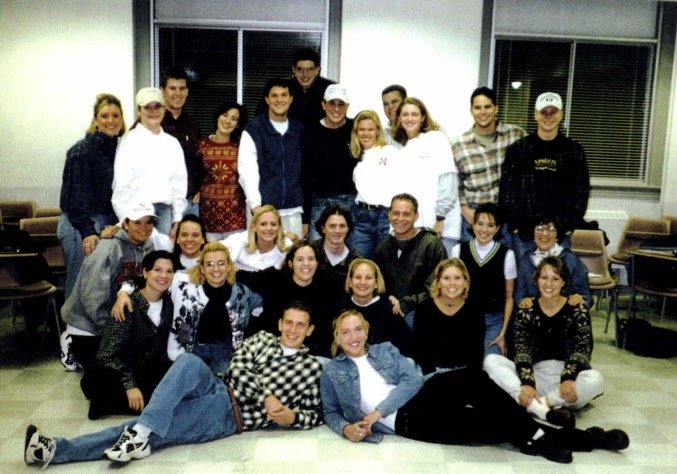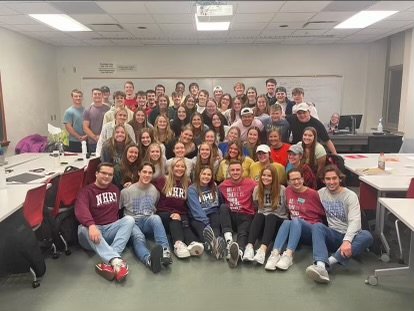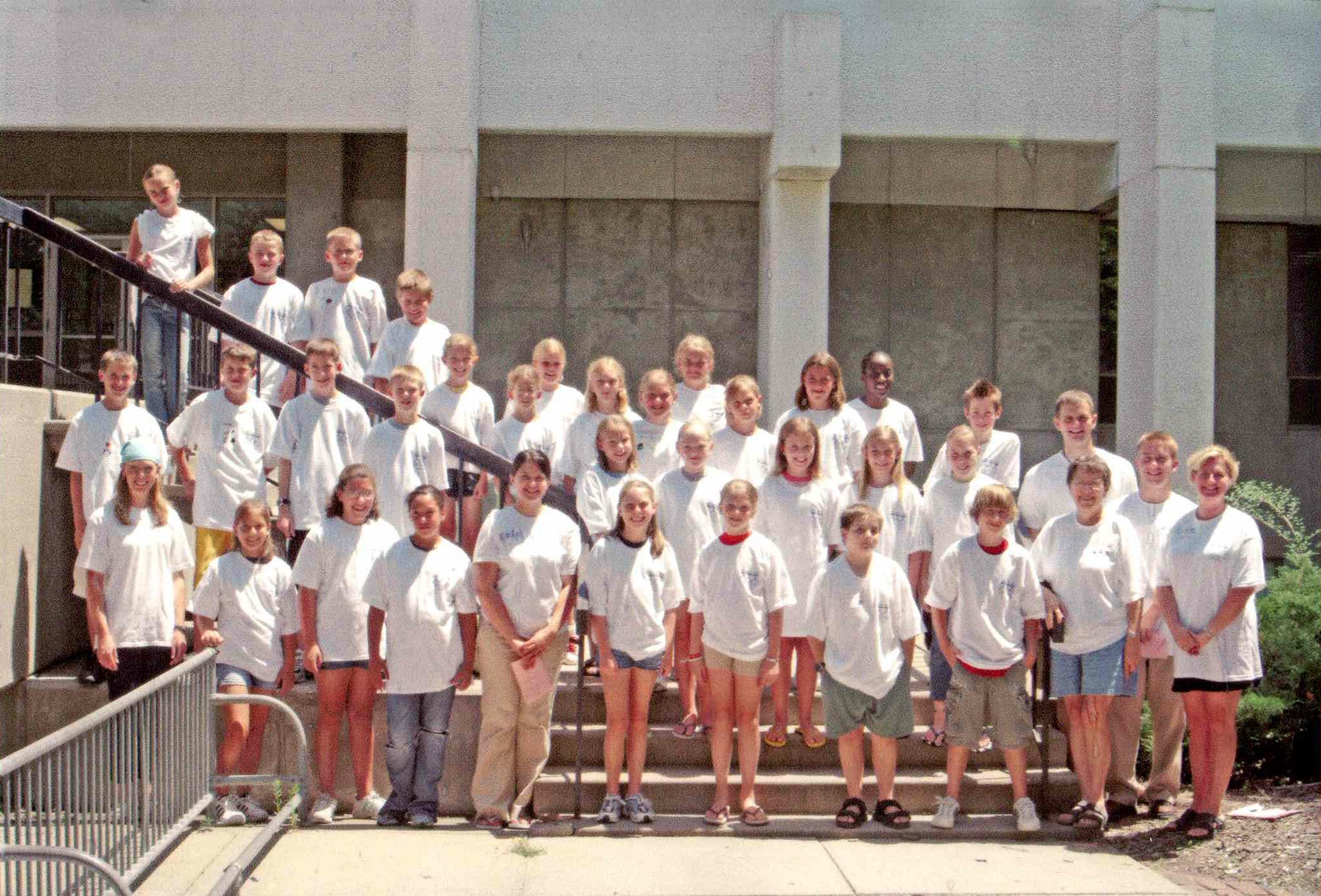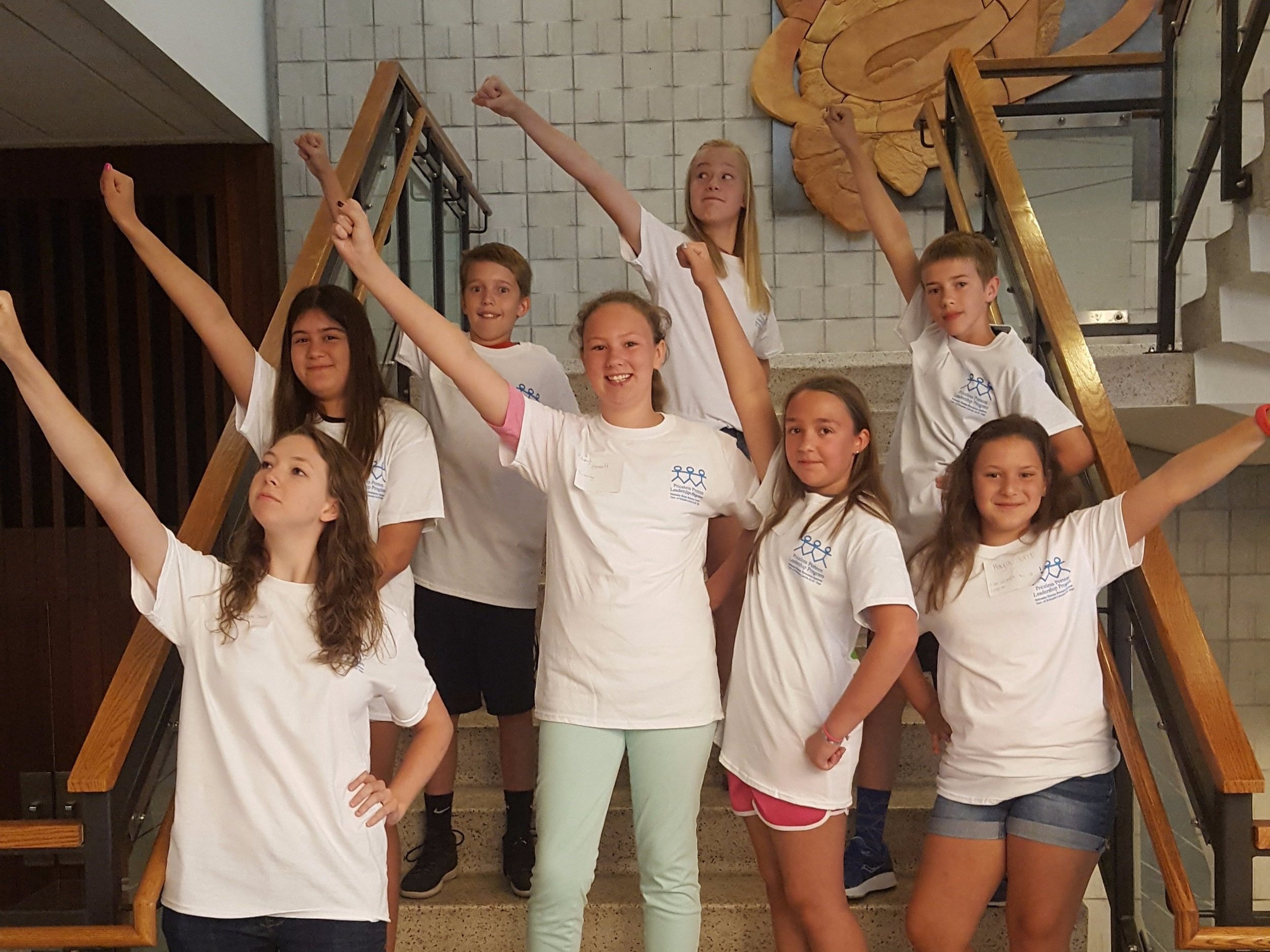Story 71 - NHRI Dictionary
Through the years some of the terminology has changed, but the people-oriented mission has always remained true. As we continue to countdown to our 75th celebrations, catch up on the latest NHRI terms and abbreviations!
ALEC: This abbreviation is short for the Department of Agricultural Leadership, Education and Communication. This department is the campus home for NHRI Leadership Mentoring. (Mentors may be majoring in the ALEC department, but it is not a requirement. NHRI mentors come from a variety of majors.)
ARD: This abbreviation is short for Annual Recognition Day. It takes place in late April/early May. Mentors and mentees come together to celebrate what they have worked on, learned, and accomplished over the course of the school year. Annual awards are given. It is also a chance for all NHRI stakeholders to learn about what’s happening in NHRI.
THE CLASS: New NHRI mentors are invited to take a class in the fall semester that helps them learn about a variety of leadership skills and concepts. Mentors use the information learned in the class to effectively mentor their mentees. This class is a specialized section of a UNL course called Interpersonal Skills for Leadership (ALEC 102).
DIFFERENCE-MAKER: Someone who spends significant time and energy to help someone else become a better person. In the context of the Investment Relationship, a Difference Maker can also be referred to as an Investor.
FALL KICKOFF: Each fall, NHRI offers an opportunity for mentors, mentees, alumni, and other stakeholders to come together, socialize, network, and celebrate the program. This annual event is sponsored by the Board of Directors and also serves as a fundraiser for the program.
GENERATIVITY: This is the concept that describes what is happening when people invest in others—particularly in the younger generation—in order to create positive change and a positive future.
HOT BUTTON/SPONTANEOUS STIMULATORS/SPARK POINT: A topic of conversation that a person could talk about all day. People tend to be visibly excited when their hot buttons come up in conversation. Finding Hot Buttons by asking open-ended questions is a key way of developing an investment relationship.
INVESTMENT: The time and energy spent by a difference maker in order to help another person become better in some way. The difference maker, or investor, invests in the other person (investee).
INVESTMENT RELATIONSHIP: The mentoring relationships in NHRI are designed as investment relationships—meaning the mentor invests time, energy, and talent in helping the mentee develop as a leader.
JP: This abbreviation is short for “Junior Project.” The abbreviation is used as part of the project name for middle school projects (JP Central, JP North, JP South).
LDP: This abbreviation is short for “Leadership Development Project.” Technically, all of the projects are leadership development projects. Two projects have LDP included as part of their project names. These projects are Lincoln High (aka: LDP) and Southeast (aka: LDP Southeast).
LT: This is the abbreviation sometimes used for “Leadership MenTee.” The mentee is the middle-school or high-school student in the NHRI mentoring relationship.
LM: This is the abbreviation sometimes used for “Leadership Mentor.” The mentee is the college student in the NHRI mentoring relationship.
NHRRF: This abbreviation is short for Nebraska Human Resources Research Foundation. NHRRF is the non-profit which sponsors NHRI Leadership Mentoring. The NHRRF Board of Directors (BOD) oversees NHRI and its operations.
ONE-ON-ONE: The primary way that mentors and mentees connect is through weekly meetings, called one-on-ones. Mentor and mentee pairs have at least 11 one-on-one meetings per semester. You might also see these meetings abbreviated as “1x1” or “1:1.”
ORIENTATION: When mentors and mentees first become part of NHRI, they are required to participate in an orientation where they will have a chance to learn more about the program and their role(s) in it.
PLI: This abbreviation is short for Preteen Leadership Institute. For more than 20 years, this weeklong leadership development program offered each summer (usually in June) for students who are preparing to enter 6th grade. Typically, PLI participants are nominated by their teachers or school administrators.
PROJECT: A grouping of NHRI mentors based on the age and school(s) of their mentees. NHRI has seven primary projects, and each project hosts weekly meetings for the mentors. These meetings are intended to be opportunities for mentor development. Mentees and their families are considered to be part of the project.
PROJECT RETREAT: Once a semester, projects host a project retreat. Mentees are invited to the retreat. It is intended as a time for mentors and mentees to interact with others in NHRI and deepen their leadership learning.
REAL LEADERSHIP CHALLENGE: Each fall, mentors and mentees come together before Fall Kickoff to discuss current challenges that mentees face in their schools. Using the Social Change Model of leadership as a framework, the Real Leadership Challenge retreat starts a conversation about the role mentees can play in addressing real leadership challenges in their schools. The Real Leadership Challenge concept started during Dr. Hannah Sunderman’s graduate work with NHRI, as she sought to support the NHRI student experience with leadership theory.
REINVESTMENT: When the Investee (Leadership Mentee) uses his/her developed strengths in order to invest, or be a difference maker, for someone else, spending significant time and energy on that person's development. Thus, the investee becomes the investor, reaching the ultimate stage of the Investment Relationship: Reinvestment. Reinvestment is the formal term for the Ripple Effect.
RIPPLE EFFECT: NHRI believes that those who are positively influenced by someone are more likely to be a positive influence in turn. Someone who positively impacts one person creates a circumstance where that person will go on to positively impact others.
STAFF ADVISOR: Each project is led by a senior mentor in NHRI. This person is referred to as the staff advisor. The staff advisor, along with their tri-chairs, leads the weekly project meetings. They serve as a resource for mentors, mentees, and mentee families. Staff advisors also meet weekly, as a group, with the NHRI Program Director and graduate staff.
TRI-CHAIR: Each project has three tri-chairs. These are typically mentors of junior standing. They work with the staff advisor to run the weekly project meetings, retreats, and serve as a resource to mentors.





















